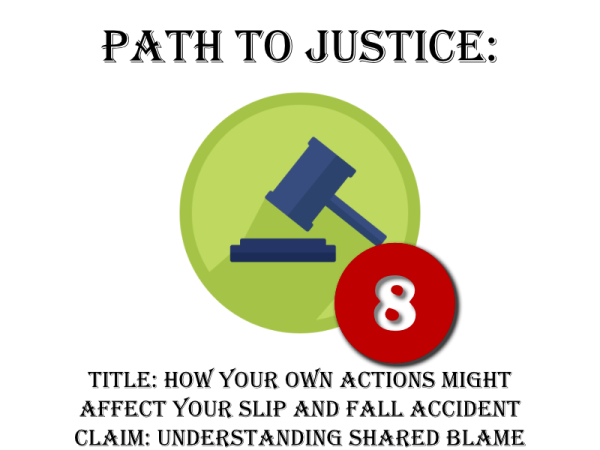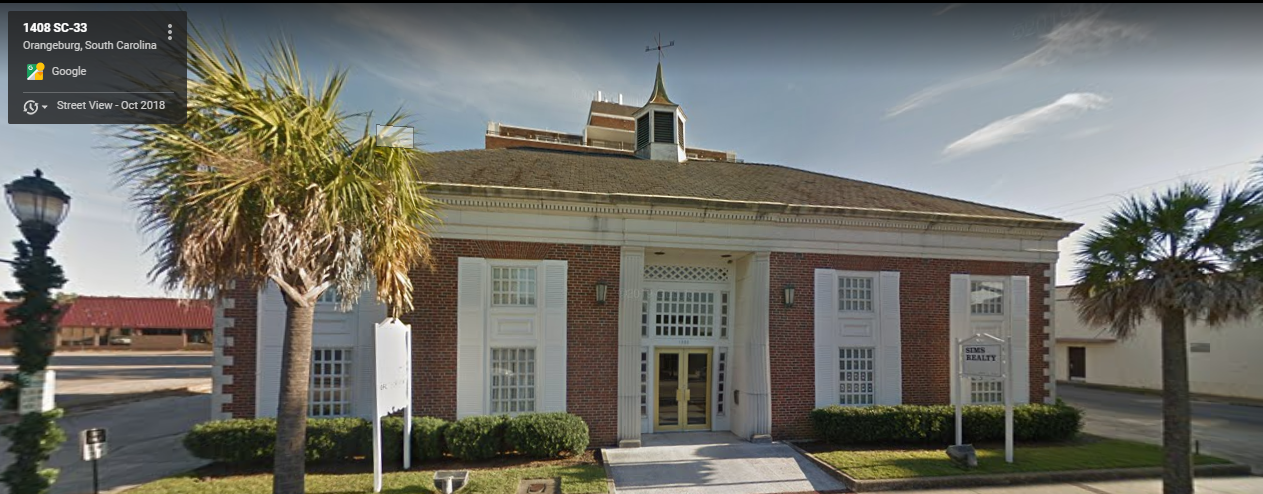How Your Own Actions Might Affect Your Slip and Fall Accident Claim: Understanding Shared Blame Featured

Slip and fall accidents can occur unexpectedly and result in significant injury. When pursuing a claim, the actions of all parties involved are scrutinized, including your own. But how can your
own actions impact the outcome of your claim? In this article, we’ll unravel the concept of comparative negligence, or in simpler terms, how the idea of “shared blame” works in slip-and-fall cases.
What is Comparative Negligence?
Comparative negligence is a legal concept that is used when the person who is injured (the plaintiff) also bears some responsibility for the accident. It basically means that the blame for an
accident isn’t entirely one-sided. Instead, it’s shared between the injured person and the person or entity they’re trying to hold responsible for their injuries. South Carolina is a “Modified
Comparative Negligence” state and allows for a plaintiff to bring suit against another liable party unless the plaintiff was more than 50% at fault. In the event of a plaintiff being more than
50% at fault, that plaintiff is barred from recovery in South Carolina.
How it Works in Slip and Fall Cases
If you’re injured in a slip-and-fall accident on someone else’s property, it might seem clear that the property owner should be responsible for your injuries. But sometimes, it’s not that
straightforward. Let’s imagine a scenario where you’re walking into a grocery store, and you slip on a wet floor. You didn’t see the puddle because you were busy texting on your phone.
In this case, you might be found partially responsible for the accident because a reasonable person would have been paying attention to where they were walking.
The Impact on Your Claim
The shared blame or comparative negligence can significantly affect the outcome of your slip and fall claim. In many states, if you’re found to be partially at fault for the accident, your
compensation will be reduced by the percentage of your fault. For example, if you were found to be 20% at fault for the accident in the grocery store, and your total damages were
$10,000, you would only receive $8,000 after the 20% reduction. That’s the case in South Carolina. Again, if the plaintiff’s fault goes beyond 50%, the plaintiff cannot recover under
South Carolina’s modified comparative negligence standard.
Protecting Your Claim
To protect your claim, gathering as much evidence as possible from the accident scene is essential. This includes photographs, witness statements, and any surveillance footage that
may be available. Additionally, avoid making any statements admitting fault at the scene, as these could be used against you later.
Seek Legal Advice
Slip-and-fall cases can get complicated, especially when comparative negligence comes into play. It’s wise to consult with a personal injury attorney who can guide you through the
process, explain how shared blame could impact your case, and help you fight for the compensation you deserve.
In Conclusion
Your own actions can indeed affect your slip-and-fall accident claim. Understanding the concept of shared blame or comparative negligence is vital in ensuring you navigate your claim
effectively and fairly. Keep in mind legal matters often involve complexities and nuances, not just simple and straightforward answers. Your actions and the property owner’s actions can
play a role in the accident, and this will be reflected in the outcome of your claim.
Administrator

Meet our blog administrator team. Our team is responsible for managing and creating content for our law firm's blog, with a focus on family law, estate planning, and personal injury. We are dedicated to providing accurate and informative articles to our readers. Our goal is to educate and inform the public on legal issues that may affect them, but it's important to note that the content provided is not legal advice and should not be used as such. We are passionate about staying current on legal trends and developments and are committed to providing valuable information to our readers.






